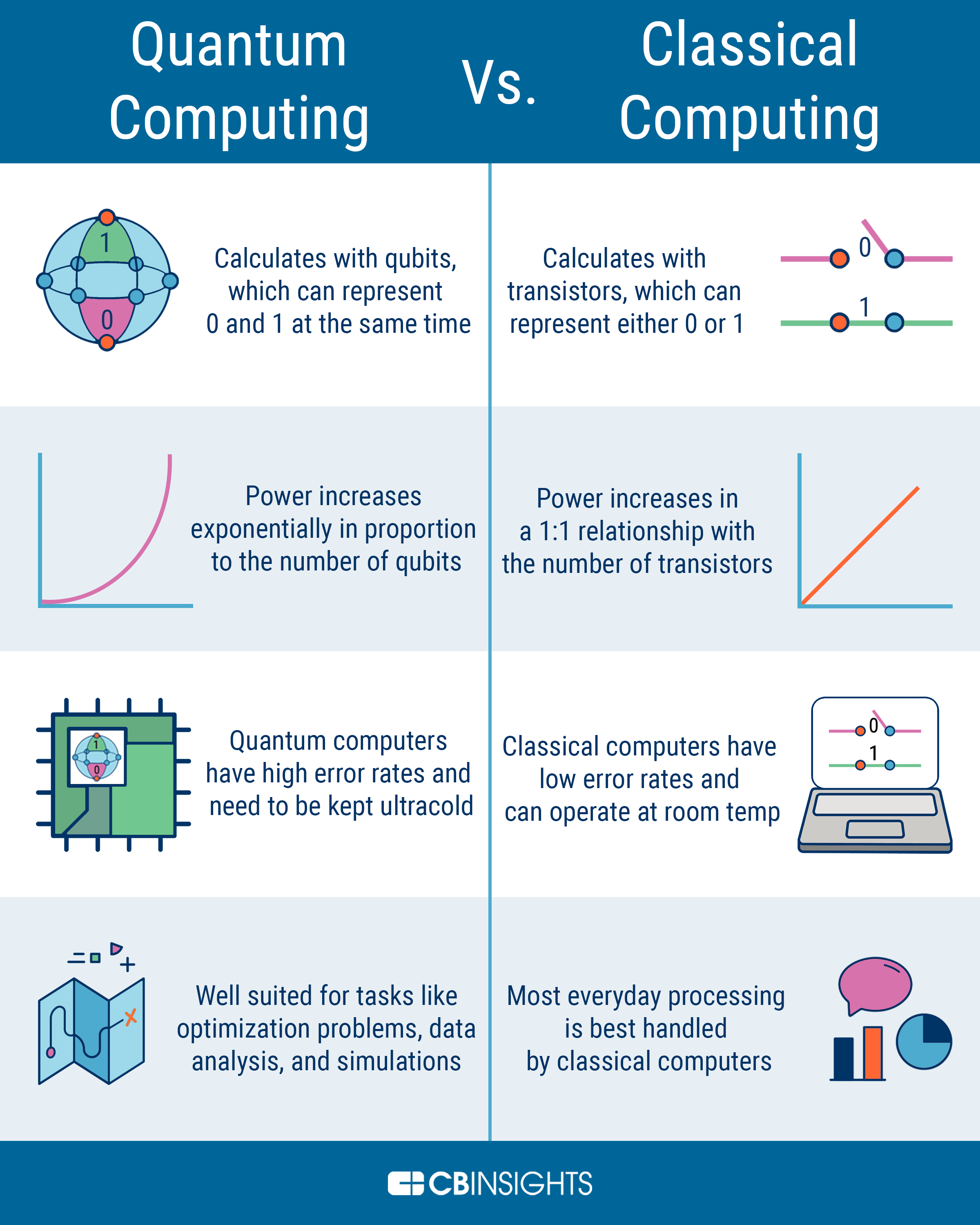Carapeastra Insights
Your go-to source for news and information on a variety of topics.
Quantum Leap: Beyond Classical Limits
Explore the mind-bending world of quantum leaps and discover how they redefine our understanding of reality beyond classical limits!
Exploring the Fundamental Differences: Quantum vs. Classical Physics
When delving into the realm of quantum physics versus classical physics, one quickly discovers that these two branches of physics differ fundamentally in their approach to understanding the universe. Classical physics, which emerged from the works of pioneers like Newton and Maxwell, operates on the premise of determinism, where the behavior of objects can be predicted with precision. In contrast, quantum physics, with its foundation laid by figures such as Planck and Einstein, introduces a level of probability and uncertainty that challenges our classical intuition. For instance, while classical physics can accurately model the trajectory of a thrown ball, quantum physics reveals that particles can exist in multiple states at once until they are observed.
Another crucial distinction lies in the treatment of scale and observation. Classical physics is primarily concerned with macroscopic phenomena, where objects adhere to the laws of motion and gravitation as expected. However, at the subatomic level, the principles of quantum mechanics dominate, leading to phenomena such as superposition and entanglement. These principles illustrate that particles do not have definitive positions until measured, and their states can be interconnected across distances, thus defying classical logic. This divergence not only highlights the limitations of classical frameworks but also opens up a new frontier in understanding the complexities of matter and energy at the quantum level.

How Quantum Mechanics Redefines Our Understanding of Reality
Quantum mechanics has emerged as one of the most revolutionary branches of physics, challenging our traditional notions of reality. At its core, quantum mechanics reveals that the very essence of particles is not as straightforward as once believed. For instance, the phenomenon of superposition suggests that particles can exist in multiple states simultaneously until they are observed. This challenges the classical view where objects have definite properties, prompting questions about the nature of existence itself. As we delve deeper into quantum theory, we uncover a reality that is not only stranger than we imagine but also stranger than we can imagine.
Moreover, the concept of entanglement illustrates the interconnectedness of particles, regardless of the distance between them. This means that a change in one particle can instantaneously affect another, creating a web of relations that defies classical physics. This interconnectedness implies that what we perceive as separate entities may be part of a larger, unified reality. By redefining our understanding of space and time through quantum mechanics, we are beginning to see the universe not as a collection of isolated parts, but as a dynamic and interdependent system that challenges the very fabric of how we perceive reality.
Can Quantum Computers Solve Problems Beyond Classical Limits?
The advent of quantum computers has sparked a revolutionary conversation in the tech community about their potential to resolve issues that are inherently challenging for classical computing systems. Traditional computers, which rely on bits as the basic unit of data, can struggle with certain types of computations, especially those involving massive datasets or complex system simulations. In contrast, quantum computers utilize qubits, which can exist in multiple states simultaneously, allowing them to perform a wide range of calculations at unprecedented speeds. This unique property enables quantum computers to tackle problems such as factoring large integers and optimizing complex systems more efficiently than their classical counterparts.
Moreover, the implications of using quantum computing extend far beyond mere speed enhancements. For instance, simulations of molecular interactions in drug discovery or complex material properties in physics are vastly more efficient with quantum algorithms. Several quantum algorithms, including Shor's and Grover's, illustrate how quantum computing could outperform classical methods significantly. As research progresses, the possibility arises that quantum computers could unlock solutions to problems that were previously deemed infeasible, potentially transforming fields such as cryptography, logistics, and artificial intelligence. The question remains: Are we ready to embrace this new computational frontier?